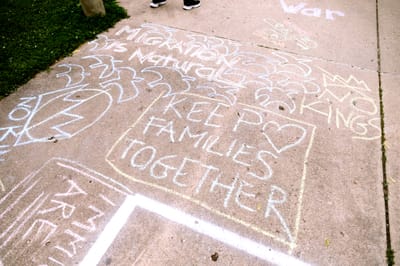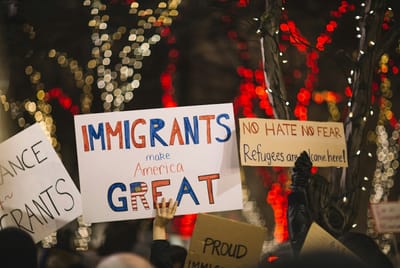One Portage Park Mom’s Immigration Journey
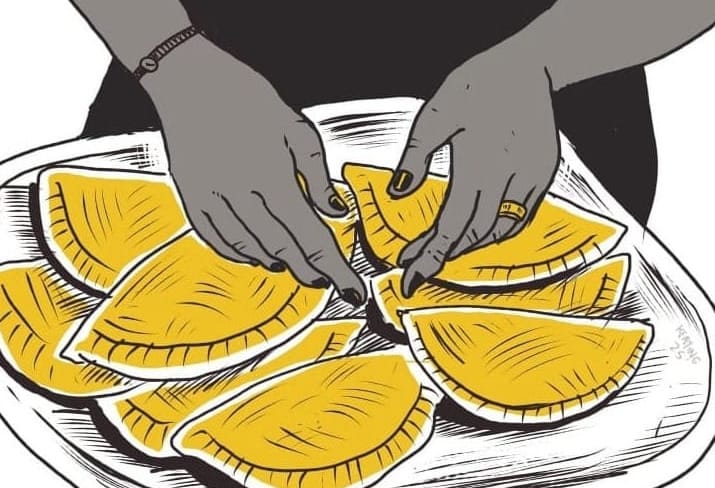
Isabel Martinez joins me in the living room of a friend and neighbor in Portage Park. That is not her real name, but her story is true. Isabel Martinez is what we’ll call her to honor her request to be anonymous. She is fearful of drawing attention to herself.
Isabel is petite and carries herself with a quiet efficiency. Her eyes sparkle when she talks about her family. She, her husband and three children made the grueling journey to Chicago from Colombia two years ago–their youngest child was only 7 at the time. They crossed treacherous terrain, scraped through jungle, crossed the notoriously dangerous Darien Gap on the Colombian-Panama border and even rode on top of a train to make it here.
What they fled in their home country was horrific. The militant Revolutionary Armed Forces aggressively recruited many men like Isabel’s husband. When he refused to participate in the violence, they killed her husband’s brothers in retribution. He was certain to be next. They lived in constant fear.
Yet when I asked Isabel what her goal was in making this harrowing escape, she folds her slender hands in her lap and simply tells me in Spanish that she came looking for a peaceful life. Vida tranquila.
My Spanish is okay but our mutual friend and host is fluent, helping with the finer points. When the Martinez family first arrived in Chicago, they found the peace they were looking for. They were so thankful for the kindness of their new neighbors, even living with a local resident while they got their feet on the ground.
Life in America, Life in Chicago
Establishing a sustainable life here on the Northwest Side has been hard work for the Martinez family, but they’ve put their whole heart into it. The process for seeking asylum is complicated, expensive and takes a long time. From the moment they surrendered to border patrol upon entering the U.S., they have made a concerted effort to follow all the rules and process. They did not sneak in. Like others, they stood in line, visited several offices and filled out the required documents. Their passports and birth certificates were taken and never returned, which is typical.
Isabel became adept at navigating Chicago by foot and CTA, and finding food pantries and other resources. As she became settled, she created a new routine. She describes her typical week for me: She wakes up three days a week at 4 a.m. to make 30-40 empanadas. She and her daughter have a little business selling them. This reporter can attest, they are truly the best empanadas I have ever tasted.
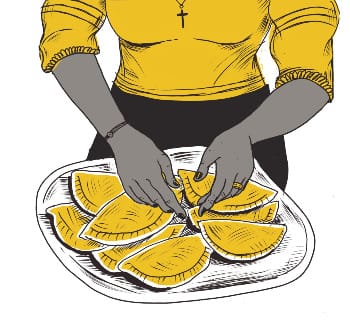
The morning picks up from there. Just before 8 a.m., Isabel wakes her youngest son for school. Her older son and daughter already efficiently manage their own school and work lives. Once the youngest is at school, she cleans homes in our neighborhood every day of the week, leaving only part of the weekend to do their laundry, and her husband works as much as he can as a handyman and gardener.
She is very proud that about 6 months ago, they had saved up enough money to get their own apartment and were able to stay in the Portage Park community that they love. Since arriving they have participated in neighborhood block parties, and the family often took the el downtown to explore the Loop and the Lakefront.
But everything has changed since Trump came into office. Isabel tells me, “Now the fear is back.” She worries about the many people she knows who have had their work permits revoked by the new administration, and with deportations in the news constantly, they don’t go out as much and only if they have to.
Her children attend local CPS schools and love their new friends. Their youngest son is now 9 and has become a superstar on his soccer team. He doesn’t completely understand why things have changed. He also can’t tell the difference between ICE and the Chicago Police. Isabel tells me he was in a panic when he saw CPD patrol cars parked on the side of the field where he plays soccer. He asked his mother, “What will happen to me if they take you and Dad?” Maybe he does understand more than we know.
Because their future may be uncertain, they have had to stop and discuss as a family how they can best stay together and hold onto what is dearest to them, each other.
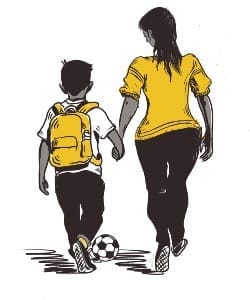
This is just one immigrant story of many in our community. This is what it is like to have come to Chicago, following the systems our country has created to seek asylum. It makes one wonder how anyone can think they deserve to be thrown in jail for wanting to be here, for following all the rules and becoming another family who just wants to be part of the city that works. Which of our neighbors will be next?
Read more Immigration Stories by Amplify:
If this story spoke to you, please share with a friend and check out ways to help or find help below!
Want to Be a Helper?
Help coordinate donations, respond to ICE raids, support Know Your Rights programs or join other efforts tailored to all skill sets & availability.
Need a Helping Hand?
From legal referrals to mutual aid organizations, there are resources available for immigrants and their allies on Chicago's Northwest Side.
Subscribe to our newsletter.
Be the first to know - subscribe today


